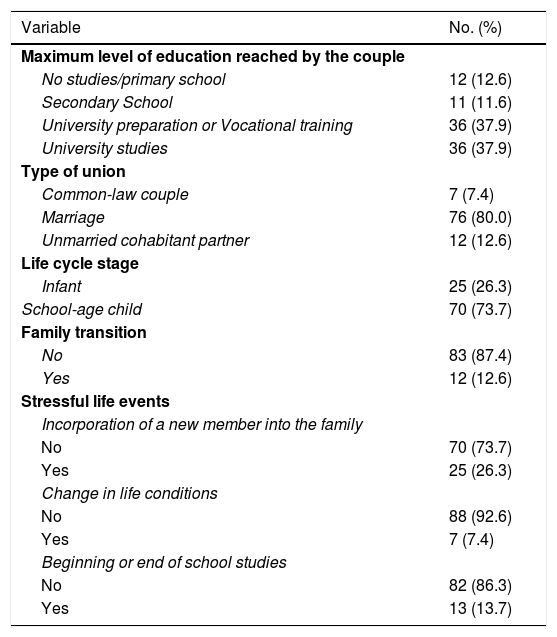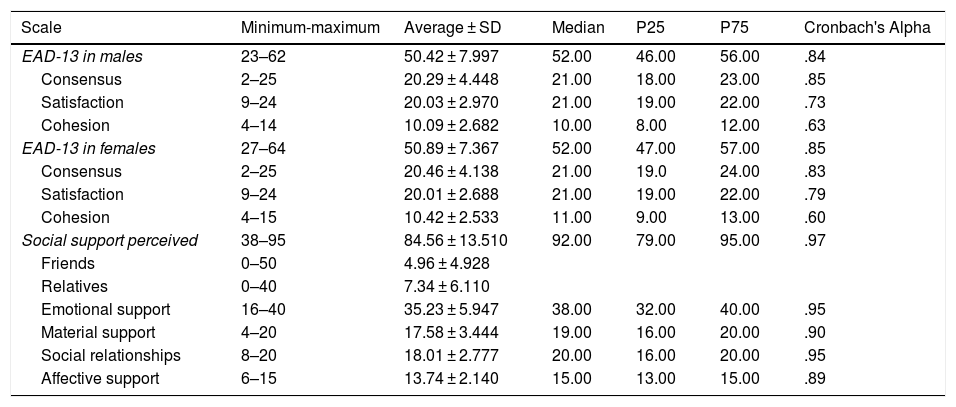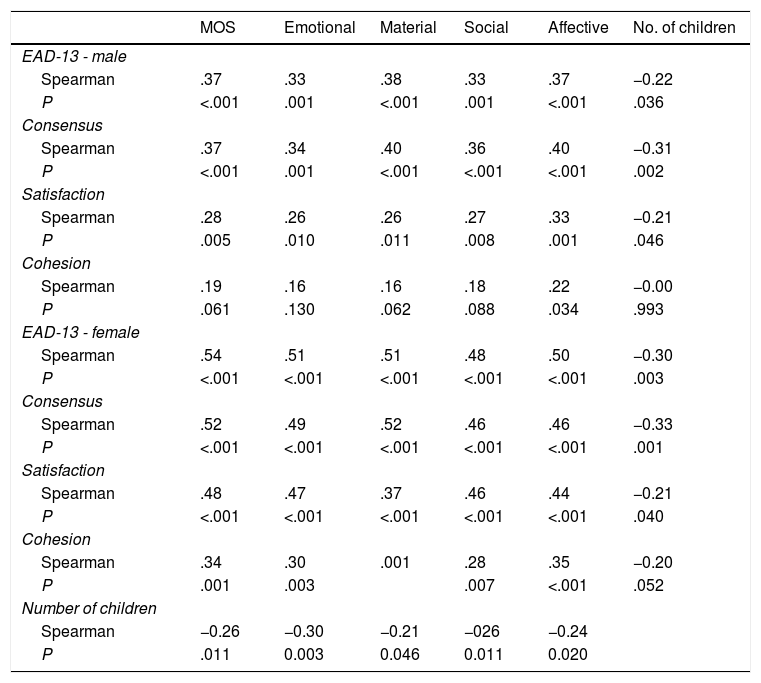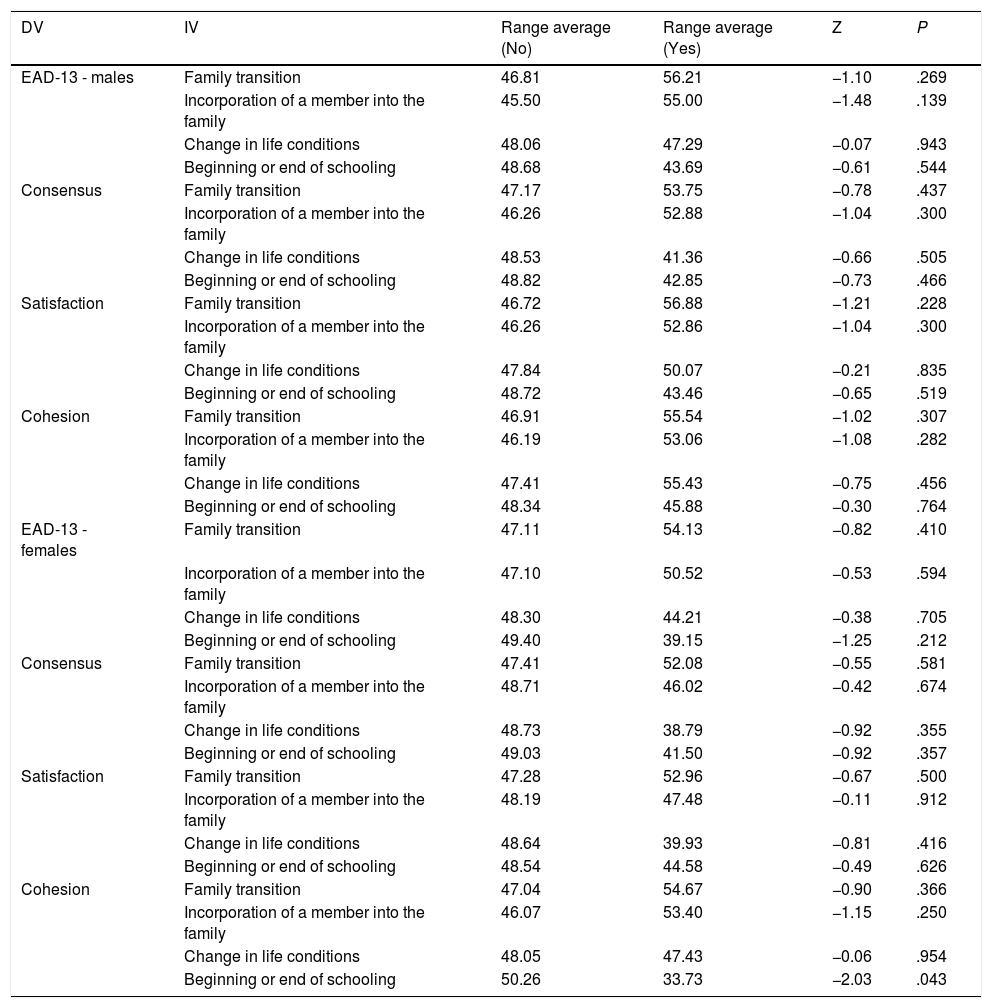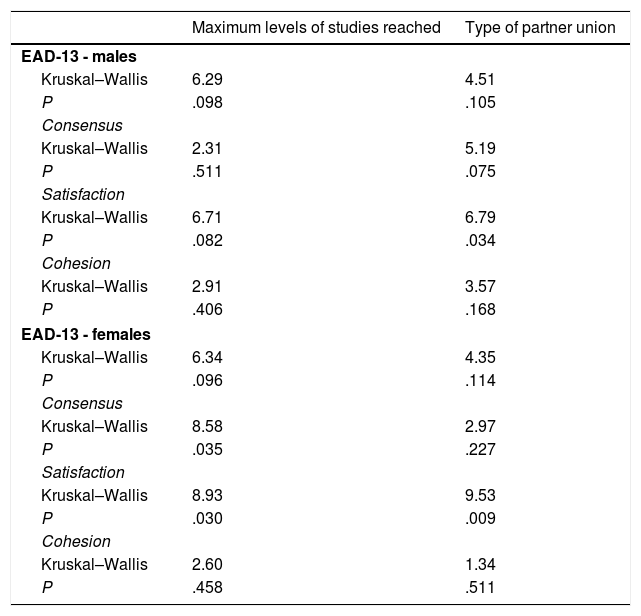To identify a relationship between social support, family life cycle, family transition and stressful events; and the dyadic adjustment among couples from Seville with children of pediatric age.
MethodDescriptive, observational and cross-sectional study. 95 Sevillian couples were recruited following a consecutive stratified sampling by quotas. They filled in a questionnaire with the study variables and the Dyadic Adjustment and Social Support scales. Data collection was carried out in 2015. The project was approved by the Research Ethics Committee of the University of Seville. Mann–Whitney U and Kruskall–Wallis non-parametric tests were used for statistical analysis, and Spearman test for correlation between variables. Significance was stated for p < 0.05.
ResultsThe couples were mostly marriages with good dyadic adjustment and social support. 26.3% had infant and 73.7% children of school age. No relationship between the life cycle nor the family transition and the dyadic adjustment were identified. The beginning-end of schooling was related to spousal cohesion and there were positive correlations between dyadic adjustment and social support; and negative correlations between the number of children and social support, consensus and satisfaction of the couple.
ConclusionSocial support and the number of children are identified as the main conditioning factors of dyadic adjustment. In this sense, it is essential to know the resources available to each couple to face the difficulties where social support and the union between the spouses can help them face the challenges.
Determinar si el apoyo social, ciclo vital familiar, transición familiar y acontecimientos estresantes se relacionan con el ajuste diádico de parejas con hijos en edad pediátrica.
MétodoEstudio descriptivo, observacional y de corte transversal. 95 parejas de la provincia de Sevilla, fueron escogidas mediante muestreo consecutivo estratificado por cuotas, y cumplimentaron un cuestionario con las variables de estudio y las escalas Ajuste Diádico Conyugal y Apoyo Social Percibido. La recogida de datos se realizó en el último trimestre del 2015 y fue aprobado por el Comité Ético de Investigación de la Universidad de Sevilla. Se aplicaron los test no paramétricos U de Mann–Whitney y Kruskall–Wallis. Para la relación entre variables el test de correlación de Sperman y para demostrar correlaciones significativas se comprobó que p < 0,05.
ResultadosLas parejas mayoritariamente eran matrimonios con buen ajuste diádico y apoyo social. El 26,3% tenían hijos lactantes y el 73,7% en edad escolar. No existe influencia del ciclo vital y la transición familiar sobre el ajuste diádico. El comienzo-fin de la escolaridad influye en la cohesión conyugal y existen correlaciones positivas entre ajuste diádico y apoyo social; y negativas entre el número de hijos y el apoyo social, consenso y satisfacción de la pareja.
ConclusionesEl apoyo social y el número de hijos se identifican como los principales factores condicionantes del ajuste diádico. En este sentido es fundamental conocer los recursos de los que dispone cada pareja para hacer frente a las dificultades donde el apoyo social y la unión entre los cónyuges puede ayudarles a enfrentar los desafíos.





